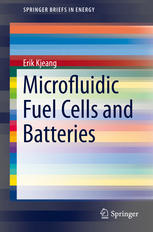

Most ebook files are in PDF format, so you can easily read them using various software such as Foxit Reader or directly on the Google Chrome browser.
Some ebook files are released by publishers in other formats such as .awz, .mobi, .epub, .fb2, etc. You may need to install specific software to read these formats on mobile/PC, such as Calibre.
Please read the tutorial at this link: https://ebookbell.com/faq
We offer FREE conversion to the popular formats you request; however, this may take some time. Therefore, right after payment, please email us, and we will try to provide the service as quickly as possible.
For some exceptional file formats or broken links (if any), please refrain from opening any disputes. Instead, email us first, and we will try to assist within a maximum of 6 hours.
EbookBell Team

4.1
30 reviewsMicrofluidic fuel cells and batteries represent a special type of electrochemical power generators that can be miniaturized and integrated in a microfluidic chip. Summarizing the initial ten years of research and development in this emerging field, this SpringerBrief is the first book dedicated to microfluidic fuel cell and battery technology for electrochemical energy conversion and storage. Written at a critical juncture, where strategically applied research is urgently required to seize impending technology opportunities for commercial, analytical, and educational utility, the intention is for this book to be a ‘one-stop shop’ for current and prospective researchers in the general area of membraneless, microfluidic electrochemical energy conversion. As the overall goal of the book is to provide a comprehensive resource for both research and technology development, it features extensive descriptions of the underlying fundamental theory, fabrication methods, and cell design principles, as well as a thorough review of previous contributions in this field and a future outlook with recommendations for further work. It is hoped that the content will entice and enable new research groups and engineers to rapidly gain traction in their own laboratories towards the development of next generation microfluidic electrochemical cells.